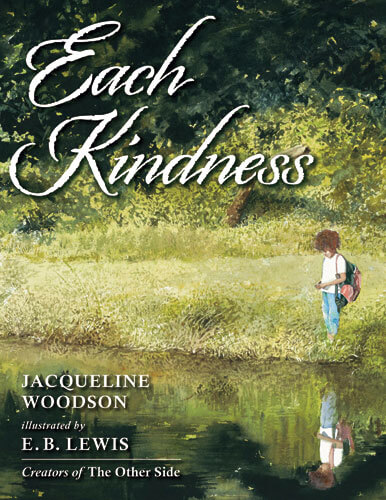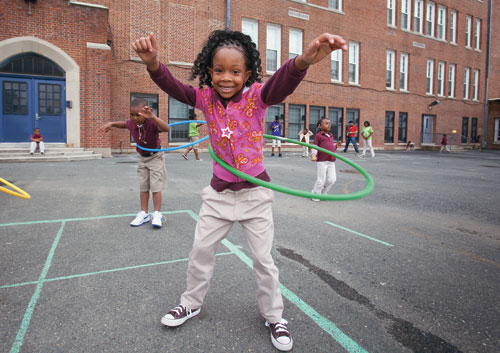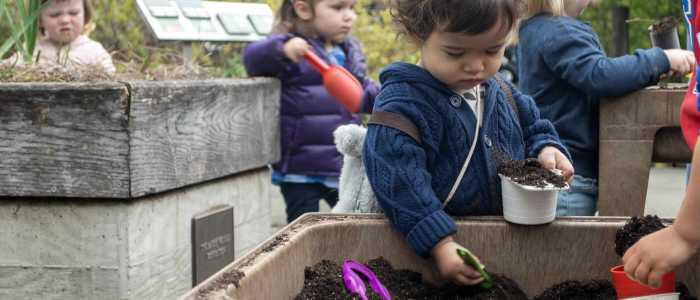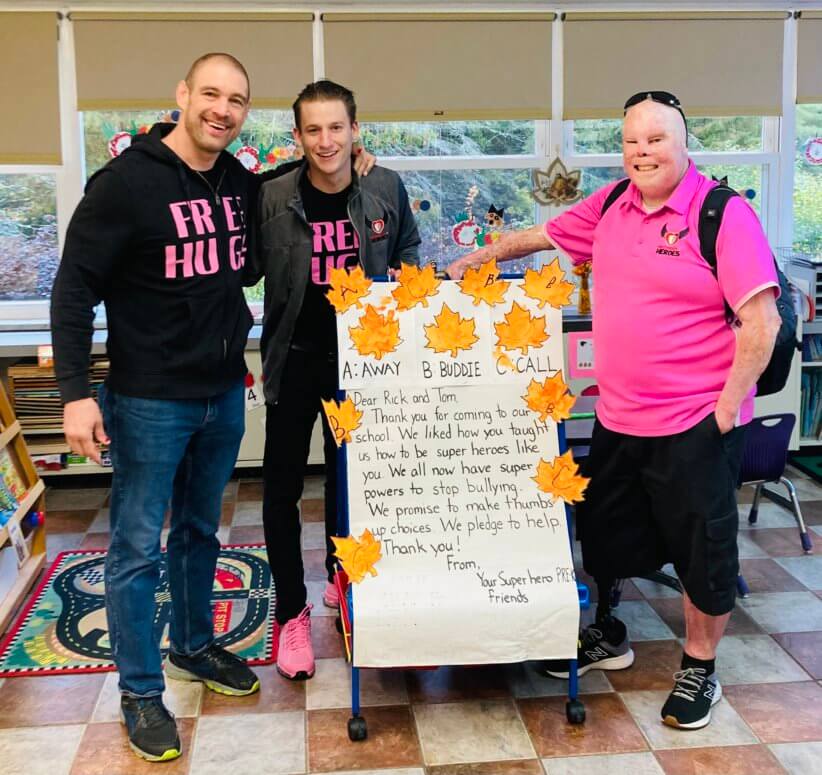
Is Empathy the Cure for Bullying? Experts Say Yes
We don’t have a bullying problem in America. At least that’s what Sweethearts and Heroes founder and former MMA fighter Tom Murphy says.
When I first approached the anti-bully group, my goal was to learn ways a parent can help their child who is being bullied. After talking to Murphy, I decided to reframe my plan because, apparently, there is a larger issue at hand, and it starts with improving the emotional health of our children.
Sweethearts and Heroes is an organization that visits schools across the country educating students of all ages on the negative impacts of bullying and empowering them to be more empathetic and compassionate individuals. Since its inception, the group has met with over two million kids, including over a thousand schools in New York State alone. I chatted with Murphy to get an understanding of what kind of social and emotional issues are plaguing today’s younger generation – one that is facing a whole new kind of bullying – and what parents can do about it. He began by explaining the group’s approach to the topic.
Psst…Family Travel at Club Med Charlevoix near Québec City in the Le Massif de Charlevoix region
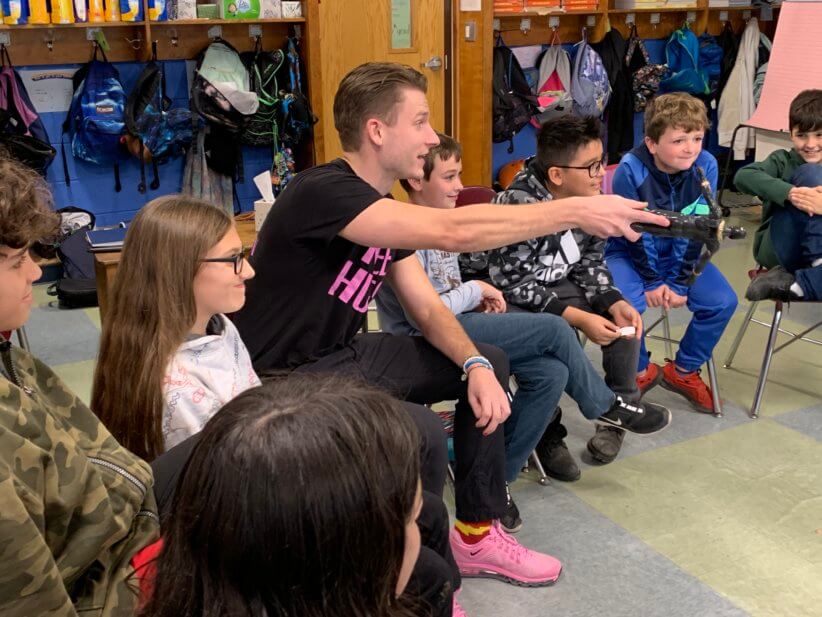
“From day one, the bullying problem has never been our focus,” he says. “Our message has always been about empowering students. People think our focus is empowering only the kids who are marginalized. But it would be a silly little trick for me to give a motivational speech and some kid is sitting in a sea of a thousand students and thinking ‘Tom Murphy said I can protect myself!’ Unfortunately, it’ll be a short period before that kid is humiliated again. Because that is that kid’s reality. You have no idea where they are coming from, what they have been subjected to, neurologically how they’ve developed over time, the culture that they’re in. It’s crazy to think that I’m going to fix a bullying issue in a one-time speech. But you know who has the opportunity to help that child? The other kids who are walking the halls with that student on a regular basis.”
According to Murphy, we can’t be quick to label a child a bully.
“Bullying is habitual; it happens over and over. There has to be an element of intimidation or fear involved. It is an intentional act,” he explains. “But many kids operate on their feelings. Sometimes they have really difficult things going on at home. Maybe their parents are getting divorced, or their pet died. You can’t expect that kid not to come to school and say something mean or hurtful. We do it as adults! And we label that kid as a bully because he hurt someone’s feelings? This kid is labeled because he is struggling in life? Not that these issues can’t lead to actual bullying, but essentially bullying is an intentional act.”
Statistics show nearly 170,000 students skip school every day in North America because they are afraid to face their bullies. So what can be done about it? The short answer is to stop it before it starts, using effective parenting methods. Murphy points out that while most people spend over 20 years preparing for their careers, they spend less than nine months preparing for parenthood. Yet essentially it’s on us as parents to teach our children to be kind and compassionate human beings.
“The greater issue is these human skills,” he says emphatically. “Empathy has been nearly cut in half in the last 30 years — both cognitive and affective empathy have been sliced in half in our students. So while we can develop a curriculum to teach kids about bullying, if you don’t have the neurological circuits in your brain that have been developed around things like empathy and compassion then good luck. Without empathy, there is no society. Being able to put yourself in someone else’s interreality and to say ‘ok they’re not me but I’ve got to work with them’, that’s the greatest struggle in our society. So I spend a lot of time identifying why empathy has degraded, and what activates it, and how to create environments and conditions where it can grow and thrive.”
“We need to start having conversations dealing with feelings,” he continues. “Parents love to say ‘don’t be sad’ to their kids. But what’s wrong with being sad? I used to be so uncomfortable when kids would get upset around me. But then I realized that was MY issue. Anger is a natural feeling. And dads, in particular, are often terrible at stopping those natural feelings from happening. You can’t do that to your kid because they will grow up and not know how to manage those feelings, and they’ll be uncomfortable around people.”
Conventional educational methods don’t seem to be working, Murphy says. You can’t send your child to school and expect they will learn the human skills needed to be compassionate and empathetic beings, because it’s just not possible in that environment.
“The famous psychologist Benjamin Bloom talked about something called learning for mastery, ” Murphy continues. “He said that anyone can learn anything given the right strategy and the right time. Unfortunately our society doesn’t allow us to treat each child differently – but they are! They’re all unique individuals, and every child has 120 billion neurons that do 10 quadrillion things per second and they’re all unique! But it’s just really hard when you have a class full of kids that are jumping up and down and screaming, not to just treat them all the same.”
Perhaps the biggest problem is the role technology plays in bullying today. It’s nothing our parents ever had to deal with and nothing we, as parents of Gen Z children, were ever prepared for.
“Bullying has been around for thousands of years, and it’s always been the same format” Murphy remarks. “But when you talk about the last two decades, it’s drastically changed. There’s no reset button anymore. When we were in school, we got to go home Friday and escape from that feeling or the behaviors directed at us. For many kids, that reset button has been ripped away. I had one mom say to me ‘My son took his own life in his bedroom, in his private misery.’
“In over a decade, I’ve never seen these challenges young people are facing today. We were in two schools this year that had suicides the week before we got there. A school in Kentucky had three in the last year, after not having one in 22 years. One school had a 12-year-old young man take his own life on the playground and his best friend found him. It’s beyond belief that our children are in such a state of hopelessness that they don’t feel like they can hold on to the possibility that exists for their future. How did we get to this space?
“Most kids don’t know how to talk about feelings of hopelessness. If your parents were born in the 50’s or 60 you didn’t talk about that stuff; you just hid it. But the research is extremely clear that talking about these things never makes them worse. The parents of today just don’t know how to talk about these things because no one talked about it with them.”
Technology isn’t the only difference between then and now, he goes on. “The most important thing is the human skills that we used to get when we were baking with mom or working on a car with dad or in the barn with grandpa,” Tom mentions. “These human skills have been nearly cut in half because we just don’t spend that face time with people anymore in play. Self-directed and self-controlled play has been eviscerated. We just don’t allow kids to do it at even a fraction of the rate that they did 100 years ago. So when you ask me about creating a curriculum to end bullying, sure we can do it, but I think the greater need is for these human skills that used to be taught naturally by parents and extended families. Nowadays it’s about just rushing kids to get them to the next thing to do instead of really working on the whole child and these emotional states.
“When I was a kid, the kid who had down syndrome or was in a wheelchair was the easy target. I’m not saying it’s always the case, but largely, I feel like we fixed that. That kid is rallied around today. I think the kid with the mental health issues or emotional health issues is the new target today and we haven’t figured out how to talk about it and to understand that it’s a condition like any other condition.
“But I feel like maybe there is a change coming in our consciousness that these issues are not to be made fun of. The kid who sits in the back of the room with his hoodie up, he’s talking to us. He’s saying ‘I’m not doing good. There’s things going on in my life that I need help with and I need different strategies than other people because the ones you’ve given me, they don’t work for me.’”
Sweethearts and Heroes aptly calls kids who help other kids superheroes. “Every superhero is ruining things with their powers when they first start using them,” Tom says. “It’s your job to teach your kids how to use their superpowers to help the kid who is not being treated the right way.”
For more information about Sweethearts and Heroes or to book a visit to your school, go to sweetheartsandheroes.com.













